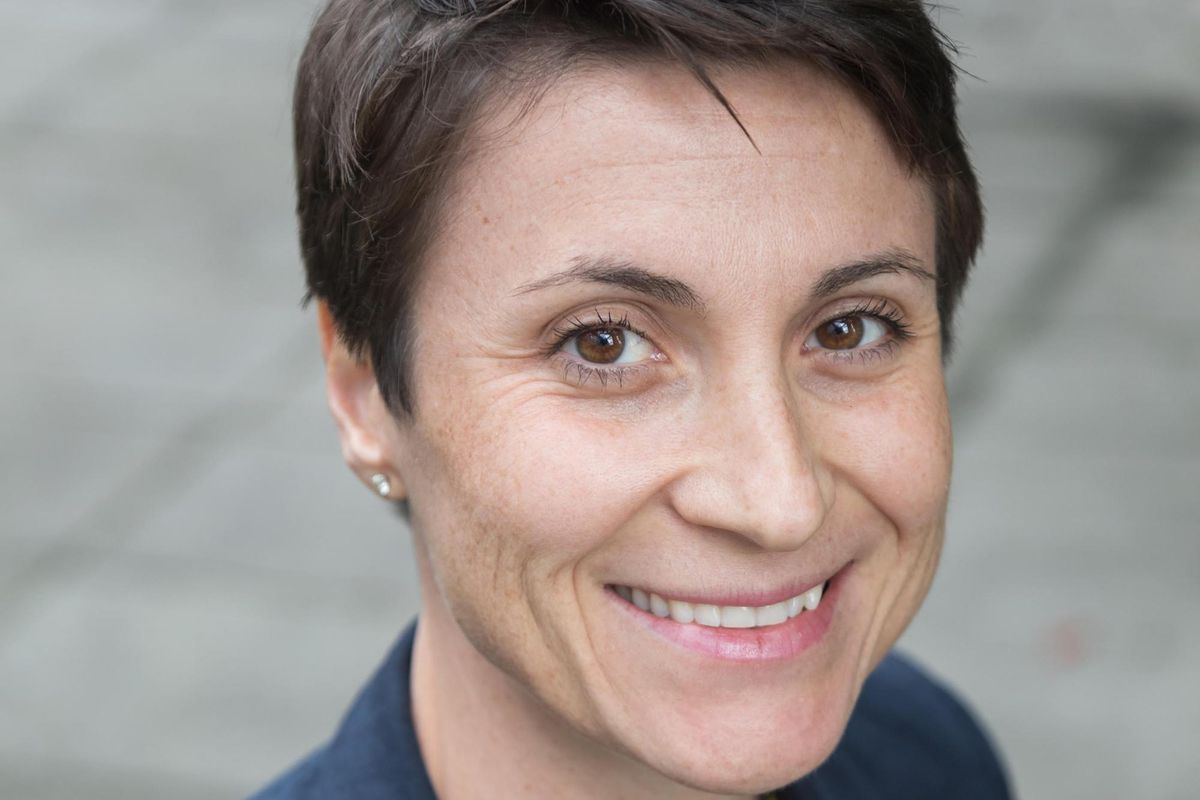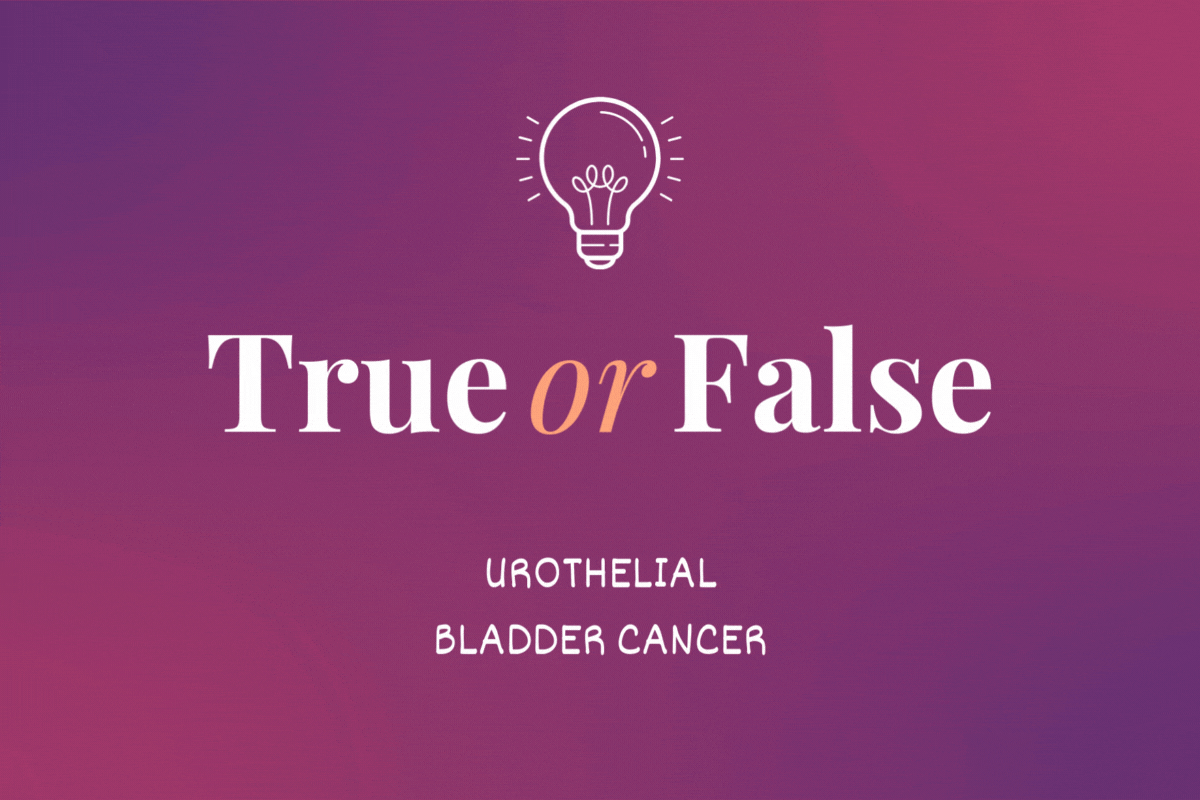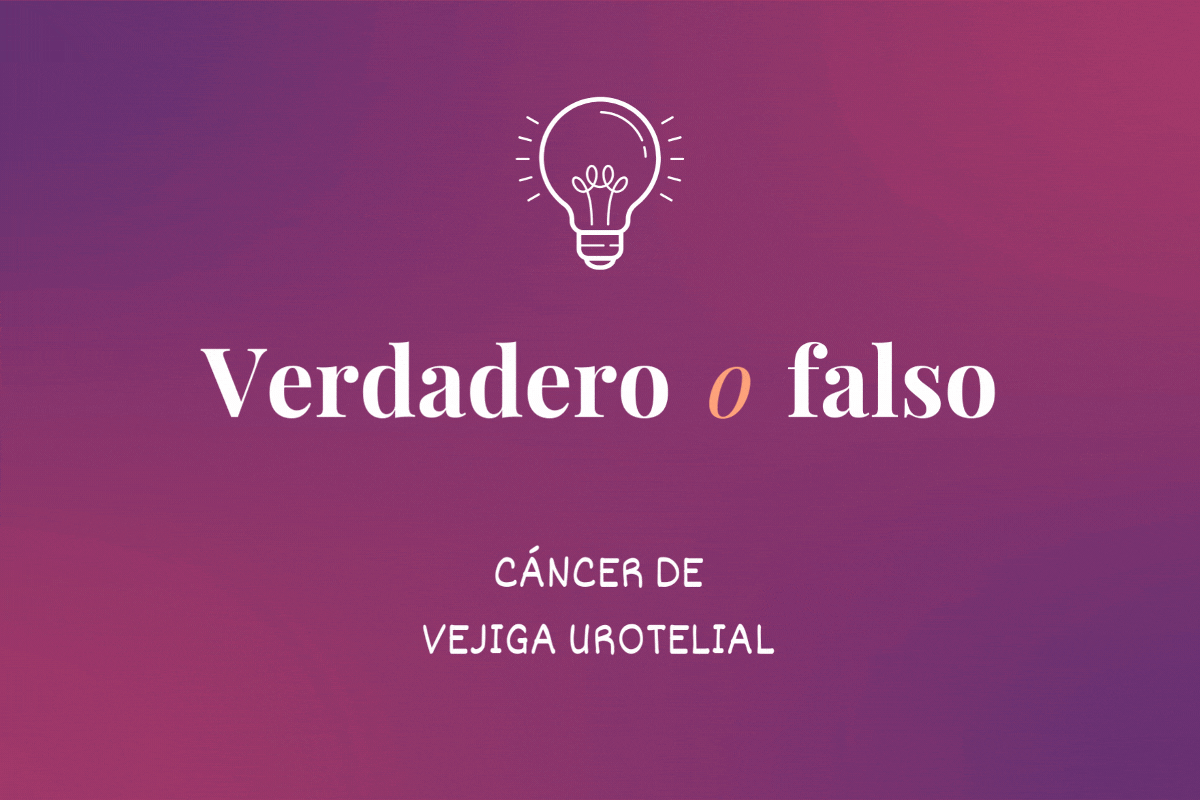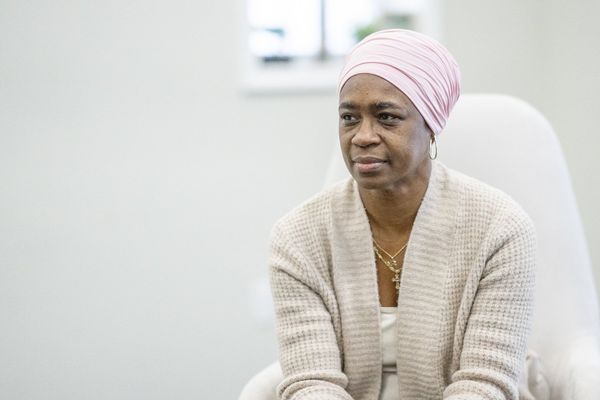This interview was edited for clarity and length.
Urothelial bladder cancer (UBC) is cancer of the lining of the urinary system. More commonly referred to as “bladder cancer,” it begins in urothelial cells, which line the inside of the bladder and other parts of the urinary tract. These cells overgrow and form a tumor. Although this type of cancer occurs most often in the bladder, it can occur anywhere that urothelial cells are present, including the urethra, ureters and kidneys.
HealthyWomen reached out to urologic oncologist Sarah Psutka, M.D., an associate professor in the Department of Urology at the University of Washington School of Medicine, to answer questions that will help you become better informed about bladder cancer.
HealthyWomen: What are the basic symptoms of bladder cancer?
Sarah Psutka: Some bladder cancers cause a lot of symptoms, while others don’t cause any symptoms at all. You can have bothersome urinary symptoms, which often feel like a urinary tract infection (UTI). These can include blood in the urine, painful urination, frequent urination, urgency and urge incontinence, which is uncontrollable leakage of urine.
HealthyWomen: How can I know if my symptoms are more than a UTI?
Sarah Psutka: Very often, bladder cancer gets missed in women because the symptoms can mimic those of a UTI, which are common in women. If you have blood in your urine or significant urinary symptoms, it’s important to give a urine specimen for culture to determine if there is an infection or not. If there are bacteria in your urine, your infection can be treated with antibiotics. However, if the culture is negative and there are no bacteria, then it is important to see your doctor to undergo a work-up to look for other reasons. It is important not to simply just start antibiotics without a culture because that can delay the diagnosis of bladder cancer.
HealthyWomen: How will a diagnosis of bladder cancer affect my relationships and sex life?
Sarah Psutka: In the early stages, you may not notice much of an impact on your sex life. However, some women with bladder cancer may experience pelvic pain or discomfort that makes sexual intercourse or sexual activity uncomfortable. In women with advanced bladder cancer, where the tumor has grown into the muscle layer of the bladder, treatment may involve surgically removing the bladder, parts of the reproductive system and (sometimes) portions of the vagina. This operation can affect your sexual sensation and your ability to engage in sexual activity. It can also affect the way you may feel about your body and how you perceive yourself as someone who’s able to engage in an intimate relationship.
It’s important for your doctor to understand how important your sex life is to you. If the cancer is advanced, unfortunately, sometimes there are limited options to preserve sexual function. But, in many cases, the cancer can be removed while preserving the ovaries, and possibly the uterus and fallopian tubes. We also can do vaginal-sparing procedures, and in cases where we can’t, there are reconstructive procedures that allow women to have a vagina with some functional capacity.
HealthyWomen: How does bladder cancer affect fertility?
Sarah Psutka: Bladder cancer is usually diagnosed in women who are postmenopausal, with the average age of diagnosis in the early 70s. But if you are diagnosed at a younger age and are concerned about fertility, it’s a good idea to talk to your provider about a total gynecologic-preserving operation. There also are oncofertility experts who can assist women with egg preservation, so you could potentially have a child that is biologically connected to you even if you cannot physically carry the baby. It is important for women to have these conversations upfront with their doctors, before treatment decisions are made.
HealthyWomen: What can I do to improve my health if I am diagnosed with bladder cancer?
Sarah Psutka: Improving fitness is important for helping you get through treatment. Going through surgery can result in a significant amount of stress for one’s body. We believe that the fitter and healthier your body is before surgery, the easier the recovery will be. If you are already exercising, keep it up. If not, think about what you can do to increase your fitness, whether it’s going for a short walk every day or taking the stairs instead of the elevator.
Nutrition is another way to optimize your health. A diet that is good for your heart, such as the Mediterranean diet, is going to be good for [fighting] your cancer — whole foods, fruits, vegetables, full grains, lean meats, healthy proteins and plenty of water.
This is also a great time to kick any bad habits, such as smoking or excessive alcohol intake. Make sure to work with your doctor to try to get other health issues, such as diabetes or asthma, under control as well.
This is the moment when you can start making powerful changes to get yourself in the best shape you can and help yourself be as healthy as possible so that you can live as well as possible as you’re going through this process.
HealthyWomen: What additional advice can you give to someone who has been diagnosed with bladder cancer?
Sarah Psutka: First, take stock of your symptoms and make sure you are communicating those to your doctors. There are things we can do for urinary symptoms, pain, fatigue or appetite problems.
Next, learn what the treatment options are and have a frank and open discussion with your provider about the risks and benefits of each.
Also, think about what you and your provider can do that’s positive at this moment, to make this process and these treatments go as well as possible. There’s a difference between being a cancer patient and living with cancer. What I hear from my patients is that one of the hardest things about a cancer diagnosis is that any control in their life was just ripped away. As a provider, I want to offer opportunities to reclaim control. As much as you can, figure out how to maintain control, and that means seeking the right care, partnering with a provider whos got your back and thinking about how you can live well with this disease.
This resource was created with support from Astellas.
- It's Bladder Cancer Awareness Month: Time to Share My Story ... ›
- My Bladder Cancer Surgery - HealthyWomen ›
- It Took 2 Years and a Second Opinion to Find My Bladder Cancer ... ›
- Living With Bladder Cancer - HealthyWomen ›
- Fast Facts: Everything You Need to Know About Urothelial Bladder ... ›
- Why Sex and Race Matter in Bladder Cancer Treatment - HealthyWomen ›
- Fast Facts: What You Need to Know About Smoking and Bladder Cancer - HealthyWomen ›
- Sex After Bladder Cancer - HealthyWomen ›
- Life After Diagnosis: Navigating the Things You Love with Urothelial Bladder Cancer - HealthyWomen ›
- Living with Urothelial Bladder Cancer - HealthyWomen ›
- La vida con cáncer de vejiga urotelial - HealthyWomen ›
- Traveling During Treatment for Urothelial Bladder Cancer (UBC) - HealthyWomen ›
- Consejos para viajar mientras recibes tratamiento de cáncer de vejiga urotelial - HealthyWomen ›
- Vivir con cáncer de vejiga - HealthyWomen ›
- Mental Health and Urothelial Bladder Cancer - HealthyWomen ›
- Una buena nutrición y el cáncer de vejiga - HealthyWomen ›
- Good Nutrition and Bladder Cancer - HealthyWomen ›
- Los sobrevivientes de cáncer de vejiga y los segundos cánceres primarios - HealthyWomen ›
- Bladder Cancer Survivors and Second Cancers - HealthyWomen ›
- How to Regain Intimacy When Your Partner Has Bladder Cancer - HealthyWomen ›
- Cómo recuperar la intimidad cuando tu pareja tiene cáncer de vejiga - HealthyWomen ›





